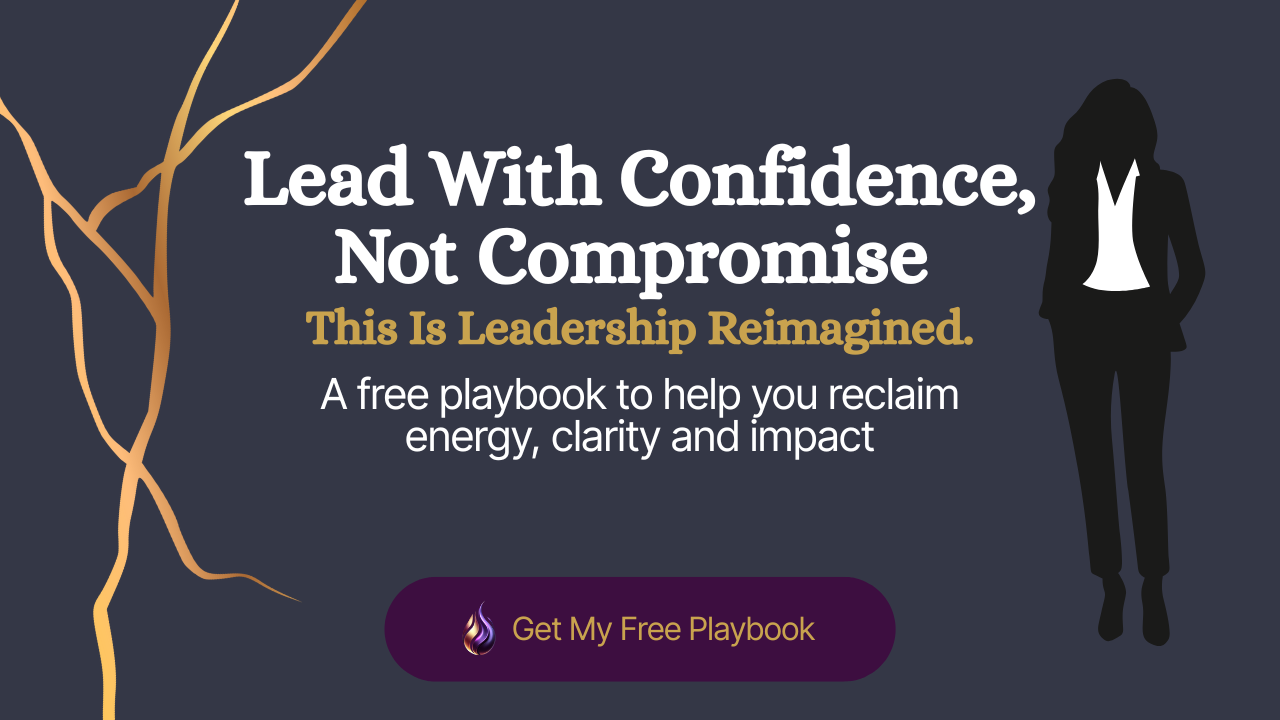Anxiety and the Holidays

How to Architect Rest Instead
Here's what no one tells you about anxiety and the holidays: They suck. And if you're a high-achieving woman juggling a demanding career, they suck exponentially harder.
While everyone else gets misty-eyed about "the most wonderful time of the year," you're secretly wondering how you'll survive the upcoming holiday gauntlet without a complete nervous system breakdown. Between year-end deadlines, family obligations, financial pressure, and the relentless expectation to be joyful about all of it, you're running a marathon in holiday heels.
The High Achiever's Holiday Paradox
Let me paint you a picture. It's December 15th. You've got three major projects due before year-end, a promotion review meeting next week, and seventeen holiday events on your calendar. Your mother wants to know why you can't make it to Christmas Eve dinner for the third year running. Your credit card statement makes you nauseous. And somewhere between the office holiday party and your child's winter pageant, you realize you're operating on autopilot, barely holding it together.
Sound familiar, Brave One?
Here's the brutal truth: You're not failing at the holidays—the holidays are failing you.
The holiday season is designed for people who have the luxury of slowing down, of compartmentalizing work and life, of having emotional bandwidth for spontaneous joy. But as a high-performing woman in finance or tech, you're already operating at capacity. The holidays don't pause your workload—they layer on top of it like psychological concrete.
Why Your Nervous System Goes Into Overdrive
The neuroscience is clear: holiday stress activates your hypothalamus, triggering your fight-or-flight response. But here's what makes it worse for women like us—we're not just managing our own stress. We're orchestrating everyone else's experience too.
You know that feeling when you're simultaneously trying to close Q4 numbers while mentally planning three different holiday meals, buying gifts for fourteen people, and figuring out how to navigate your difficult relatives without having a public meltdown? That's not holiday spirit, Brave Soul. That's your nervous system screaming for help.
Research shows that 81% of people experience increased stress during the holidays, but for ambitious women, the statistics are even more sobering. We're the ones who somehow became the Chief Operating Officers of everyone else's happiness while maintaining our professional edge.
The truth bomb no one wants to say out loud: Most holiday stress isn't about the holidays at all. It's about trying to be superhuman during the one time of year when the whole world expects you to also be magical.
What Nobody Tells You About "Holiday Rest"
Here's where most holiday advice gets it spectacularly wrong. They tell you to "just relax," "take some time off," or "enjoy family time." But here's the contrarian truth I learned the hard way: Taking a vacation from burnout is like putting a band-aid on a broken bone.
I speak from experience. My holidays used to be a carefully choreographed disaster. From Halloween through Russian Christmas in January (yes, my adopted son extended our season), I was in constant motion. Event planning, gift buying, food preparation, family management—all while maintaining my professional responsibilities and pretending this was somehow joyful.
The breaking point came during one particularly brutal December when I found myself crying in a Target parking lot because they were out of the specific ornaments I "needed" for our tree. That's when I realized something profound: I wasn't resting during the holidays—I was performing rest while actually working harder than ever.
Traditional holiday advice treats anxiety like a surface-level problem that disappears with more eggnog and Christmas music. But your nervous system doesn't care about holiday cheer when it's stuck in survival mode.
The Shift That Changes Everything: Architect Rest Instead
This is where everything I learned about neuroscience and leadership converged into something revolutionary. Instead of hoping rest would magically happen during the holidays, I started architecting it.
What's the difference? Passive rest is taking time off and hoping your anxiety subsides. Architected rest is intentionally designing recovery practices that actually rewire your nervous system for resilience.
This connects to what many of us experience year-round—that silent anxiety that quietly steals your peace even during supposedly restful times. The holidays just amplify what's already happening beneath the surface.
5 Advanced Neuroscience Practices to Architect Your Holiday Recovery
These aren't your typical holiday tips, Brave One. These are precision interventions that actually rewire your nervous system for resilience:
1. Somatic Nervous System Regulation
Move beyond surface-level awareness to active nervous system intervention. When holiday stress hits, place one hand on your chest, one on your belly. Notice which moves first when you breathe. Consciously shift to belly breathing while gently pressing your tongue to the roof of your mouth. This activates your parasympathetic response through direct somatic feedback.
2. Stress Inoculation Protocols
Instead of avoiding holiday stressors, build controlled exposure to build resilience. Before that difficult family dinner, spend 2 minutes visualizing the scenario while maintaining calm breathing. Your brain learns to handle the actual stress more effectively because you've already "practiced" the neural response.
3. Polyvagal Vagal Toning
Your vagus nerve is your nervous system's reset button. Activate it through specific humming or "voo" sounds during holiday overwhelm. The vibration directly stimulates vagal tone, shifting you from fight-or-flight into social engagement mode. Do this before family gatherings for immediate nervous system regulation.
4. Neuroplasticity Rewiring Protocols
Actively rewire holiday stress patterns through targeted neural intervention. After any holiday interaction that triggered you, immediately do something novel—write with your non-dominant hand, take a different route home, or listen to unfamiliar music. This disrupts automatic stress patterns and creates new neural pathways.
5. Mindful Holiday Eating
Holiday meals are often stress-eating marathons disguised as celebration. Try this: Before each bite, notice the texture, flavor, and smell of your food. This mindful approach prevents the mindless consumption that leaves you feeling worse, not better, while keeping you present instead of anxious.
Your Permission Slip to Be Different
Here's what I wish someone had told me during those overwhelming holiday years: You have permission to architect your holidays differently.
Scale back on events that drain you. If family gatherings feel more like emotional torture than celebration, you can politely decline. Ask yourself: Do you really need seventeen different dishes for dinner, or would your three favorites create the same experience with 80% less stress?
This is fundamentally about building boundaries that actually work in high-stakes situations. The holidays don't exempt you from protecting your energy—they make it more crucial.
Permission granted to:
- Leave holiday parties early
- Buy fewer (but more meaningful) gifts
- Order takeout instead of cooking everything from scratch
- Say no to hosting if you're already overwhelmed
- Take actual breaks during "break" time
The Questions You're Really Asking
"What are the symptoms of holiday stress?" Watch for physical exhaustion that doesn't improve with rest, increased irritability during family interactions, difficulty concentrating at work despite normal performance, sleep disruption, and that constant feeling of being "behind" or overwhelmed by your to-do list.
"Is holiday anxiety a real thing, or am I just being dramatic?" It's absolutely real. Your nervous system doesn't distinguish between work deadlines and holiday deadlines—stress is stress. The added emotional expectations just make it more complex.
"Why does my anxiety get worse around the holidays?" Because you're trying to rest a dysregulated nervous system while simultaneously adding more demands to it. It's like trying to sleep while running a marathon.
"Can holidays trigger anxiety?" Absolutely. Holidays disrupt your normal routines, add financial pressure, force family interactions, and create performance expectations—all while maintaining your regular responsibilities. It's a perfect storm for anxiety activation.
"How do I deal with stress at Christmas?" Stop trying to "deal with" it and start architecting around it. Use the advanced nervous system techniques above, set boundaries around your energy, and remember that your worth isn't measured by how perfectly you execute the holidays.
"How do I actually get rid of holiday stress?" You don't get rid of it—you architect around it. You build practices that help your nervous system stay regulated regardless of external circumstances.
What This Actually Looks Like
Last December, one of my clients—a VP at a tech company—decided to architect her holidays instead of surviving them. Same family dynamics, same work pressures, same December chaos. But this time, she used somatic nervous system regulation during difficult family conversations, implemented stress inoculation protocols before attending events, and practiced vagal toning in her car between gatherings. Most importantly, she set a boundary: only one holiday event per week unless it was kid-related (school concerts, church pageants).
The result? She didn't avoid the holidays—she navigated them from a place of intentional strength instead of reactive overwhelm.
She didn't change her holiday plans—she changed her nervous system's response to them.
Ready to Stop Managing Anxiety and Start Architecting Recovery?
This is just the beginning of what's possible when you understand the neuroscience of real resilience. Most high-achieving women spend the holidays managing symptoms rather than addressing the root cause: a nervous system that has been running on overdrive all year.
But you're not most women, are you?
The holidays don’t have to leave you running on fumes. The Aligned Leadership Playbook gives you five practical frameworks to reset your energy and lead with ease—even during the busiest season:
✔ Own your authentic leadership identity (instead of performing confidence)
✔ Use the 3-second gut check to make clear, stress-free decisions
✔ Protect your energy with boundaries that don’t budge
✔ Redefine productivity so you stop overcommitting and start focusing on what matters
✔ Lead like a human, not a machine—bringing presence and authenticity home and at work
Because real resilience isn’t about pushing through the season—it’s about designing it on your own terms.
Because the women who change the world don't just survive the season—they architect it on their own terms.
Remember, Brave Soul: You don't need permission to protect your nervous system—but I'm giving it to you anyway. This holiday season, choose architecture over accident, intention over overwhelm.
Inbox clutter is exhausting. This isn’t that.
If you’re a high-achieving woman who’s done with leadership models that drain you—this is where it shifts.
You’ll get a monthly leadership newsletter, the occasional insider-only invite, and bold insights that actually move the needle.
Built for women who don’t have time to waste—and don’t want to.
We hate SPAM. We will never sell your information, for any reason.




